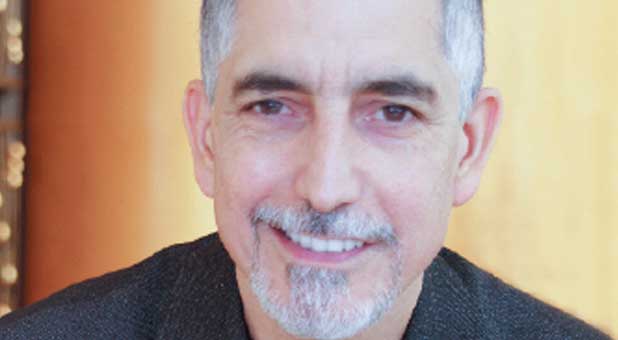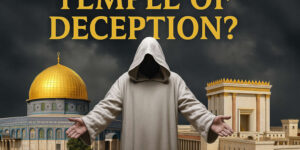Will Conservative Values Matter on Judgment Day?
Revelation 20:11-15 says:
Then I saw a great white throne and him who was seated on it. From his presence earth and sky fled away, and no place was found for them. And I saw the dead, great and small, standing before the throne, and books were opened. Then another book was opened, which is the book of life. And the dead were judged by what was written in the books, according to what they had done. And the sea gave up the dead who were in it, Death and Hades gave up the dead who were in them, and they were judged, each one of them, according to what they had done. Then Death and Hades were thrown into the lake of fire. This is the second death, the lake of fire.
2 Corinthians 5:10-11 says:
For we must all appear before the judgment seat of Christ, so that each one may receive what is due for what he has done in the body, whether good or evil. Therefore, knowing the fear of the Lord, we persuade others.
These remarkable portions of Scripture speak of a certain point in the future when all human beings—both Christians and non-Christians—will face an upcoming judgment which will be based on our lives and works as individuals. There is nothing spoken in either passage related to an individual being judged as organically connected to a family, community, or nation.
This is not to say that nations and corporate entities will not be judged (for example, Sodom and Gomorrah); Scripture does speak of sheep and goat nations (Matt. 25) and cities being judged (Mat. 11:20-24). But while these passages point to the fact that in the judgment we will likely be identified with a certain national and corporal heritage, it doesn’t take away from the fact that individuals who serve God will not be penalized for the sins of their nation. For example, 2 Peter 2:7 shows that Lot was not condemned with the other inhabitants of Sodom) or for the sins of their families (Ezekiel 3:19-20).
Ezekiel 3:4 makes it very clear: it is the soul who sins who shall die! And Paul says that “God commands all people everywhere to repent” (Acts 17:30).
Where am I going with all of this? I have attempted to establish that we will be judged by God as individuals. This flies in the face of the typical liberal mantra in which individuals are not responsible for their actions because of their cultural and economic environment (racism, class warfare, systemic poverty), psychological upbringing (the way our parents raised us), and/or because of genetic determinism (i.e., we are genetically predisposed to behave in a certain way from birth; thus it is not a choice how we act out our lives as individuals).
The result of this liberal ideology is for the state to overregulate every aspect of individual human life to bring about a utopia, resulting in the emphasizing of the secular state over religion, and the corporate state over individual rights. This, in turn, deemphasizes individual human rights, liberty, and private property rights, and favors redistribution of wealth, egalitarianism, and a large central government.
Ben Shapiro aptly states it this way:
“The same position that rejects the sanctity of unborn life tends to reject the sanctity of private property; both are based on the John Locke-ian premise that man is special in the universe, and that the product of his labor is an extension of his special place in the universe. Ignore man’s godly origins and his property becomes a dispensable commodity rather than a fulfillment of a divine mission.
“More than that, the religious society rests on two fundamental principles: personal responsibility and belief in responsibility to future generations. Secularism rejects both principles. Personal responsibility becomes societal responsibility in the secular view; our genetics and our environment, both of which are out of our control, shape us all. How, then, can we are held responsible for our actions?” (The Death of American Religion)
Thus, to take this a step further, it is no accident that in the gospels Jesus speaks about money far more than He speaks about heaven or hell. Why? Because money is one of the greatest yardsticks to measure our commitment to God and our priorities in life; where and how we spend our money indicates where our treasure is (Matt. 6:21). Also, when the children of Israel were in bondage in Egypt, God released them from slavery so they could go and worship Him. Thus God was forever connecting the right to earn the fruit of our labor and private property with worshipping Him; worship is not just singing songs but also how we steward our creativity and gifts as individuals in this world (Exodus 8:1). Hence, Scripture sees slavery to the state as something that impedes our worship of Jehovah!
Furthermore, the eighth commandment, “You shall not steal” (Exodus 20:15) also strongly implies an individual’s right to own property. This is opposed to communism in which everything is owned by the state, resulting in the criminal act of theft being against the state rather than against a particular individual. This also violates the tenth commandment which has to do with not coveting our neighbor’s goods—yet another passage teaching the right of individuals to own private property.
The right to own property, earn and spend money is important in Scripture because it represents how we live our lives and is part of the test of stewardship God uses to judge our sojourn as individuals on the earth. The statist concept largely gets individuals “off the hook” and compromises individual identity and obligation. In referring to individuals, Jesus taught: “One who is faithful in a very little is also faithful in much … If then you have not been faithful in the unrighteous wealth, who will entrust to you the true riches?” (Luke 16:10-11).
The whole book of Proverbs is replete with maxims regarding individuals living lives of wisdom, and teaches the consequences of individual actions related to the concept of “whatsoever a man sows, that shall he also reap” (Prov. 1:2; 11:17-31; read also Galatians 6:7-10 which clearly distinguishes between individual responsibility and the household of faith, which is our corporate identity).
Thus Scripture has a balanced perspective in which individuals are obligated by God to serve and bless their families (Eph. 5:21-6:4), their churches (Gal. 6:10), and their nations (1 Tim. 2:1-3; Rom. 13:1-7), while not compromising their individual dignity, calling, gifts and ability which are all necessary to serve and worship God in this life.
The more secular a nation or empire becomes, the less human dignity and individual rights it will advance, and the more tyrannical and autocratic its policies become. Only when a nation believes in the moral depravity and original sin of the human race, and only when a nation espouses the belief that human rights come from God, will it institute the proper checks and balances that prohibit an overreaching central government that expands at the expense of individual liberty and religious liberty.
The re-election of left-leaning President Obama means that the United States is continuing further down the road toward the secular state, which can mean the further erosion of individual liberty, the sanctity of life, biblical marriage and religious liberty.
It behooves all of us in the Body of Christ to obey the injunction in 1 Tim. 2:1-4 regarding our obligation to pray for our president and all of our nation’s political leaders so the gospel will not be inhibited and that we can lead godly and tranquil lives.
Joseph Mattera has been in full-time ministry since 1980 and is currently the presiding bishop of Christ Covenant Coalition and Overseeing Bishop of Resurrection Church in New York, a multiethnic congregation of 40 nationalities that has successfully developed numerous leaders and holistic ministry in the New York region and beyond. Click here to visit his website.






































